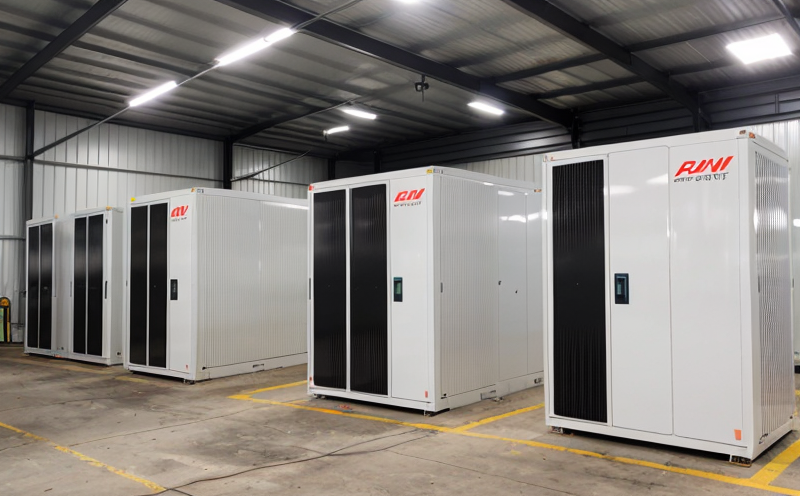EN 62620 Performance Testing of Industrial Lithium Batteries
The European Standard EN 62620 specifies performance requirements and test methods for industrial lithium batteries. This standard ensures that the batteries meet high safety, reliability, and performance criteria essential in demanding industrial applications.
Industrial lithium batteries are critical components in various industries such as transportation, energy storage systems (ESS), and heavy-duty equipment where continuous operation is crucial. The testing outlined in EN 62620 aims to provide a robust framework for ensuring that these batteries can withstand the rigors of real-world use.
The standard covers several key aspects including thermal stability, mechanical abuse resistance, electrical performance, and safety features such as over-temperature protection and over-current protection. These tests are critical in industries where even minor failures could lead to significant operational disruptions or safety hazards.
Thermal stability testing involves assessing the battery's ability to withstand high temperatures without degrading its performance. This is particularly important for industrial applications that may be exposed to extreme environmental conditions. Mechanical abuse resistance tests simulate real-world impacts such as dropping, vibration, and compression to ensure the battery remains functional under these stressors.
Electrical performance testing evaluates the battery's ability to deliver consistent power output over its lifespan. This includes cycle life testing, which simulates the repeated charging and discharging cycles that a battery undergoes in an industrial setting. Acceptance criteria for these tests are stringent, ensuring that only batteries with reliable performance are approved.
Safety features such as over-temperature protection and over-current protection are critical components of EN 62620. These features ensure that the battery can respond appropriately to abnormal conditions, preventing potential failures or hazards. The standard also includes testing for internal short circuits, which is a common cause of battery failure.
Testing according to EN 62620 not only ensures compliance with international standards but also provides manufacturers and quality managers with confidence that their products will perform reliably under the most challenging conditions. This level of assurance is crucial in industries where downtime can be costly or dangerous.
| Applied Standards |
|---|
| EN 62620:2013 - Performance Requirements and Test Methods for Industrial Lithium Batteries |
Customer Impact and Satisfaction
- Ensures compliance with international standards, enhancing customer trust.
- Provides reliable data that can be used in marketing materials, improving brand reputation.
- Reduces the risk of product failures leading to operational disruptions or safety hazards.
- Supports regulatory compliance, avoiding potential fines and penalties.
Eurolab Advantages
At Eurolab, we bring over 30 years of experience in testing and certification services. Our state-of-the-art facilities are equipped with the latest instrumentation to perform EN 62620 testing accurately and efficiently.
We have a team of highly skilled engineers and technicians who specialize in lithium battery testing. They possess deep knowledge of industrial applications, ensuring that our tests simulate real-world conditions closely.
Our compliance with ISO/IEC 17025 accreditation ensures the highest level of quality assurance for all our testing services. This means you can trust the results we provide to be accurate and reliable.
We offer a comprehensive range of services, including consultation on test procedures, specimen preparation guidance, and detailed reporting tailored to your specific needs. Our goal is not just to meet standards but to exceed expectations, providing you with robust data that supports informed decision-making.





